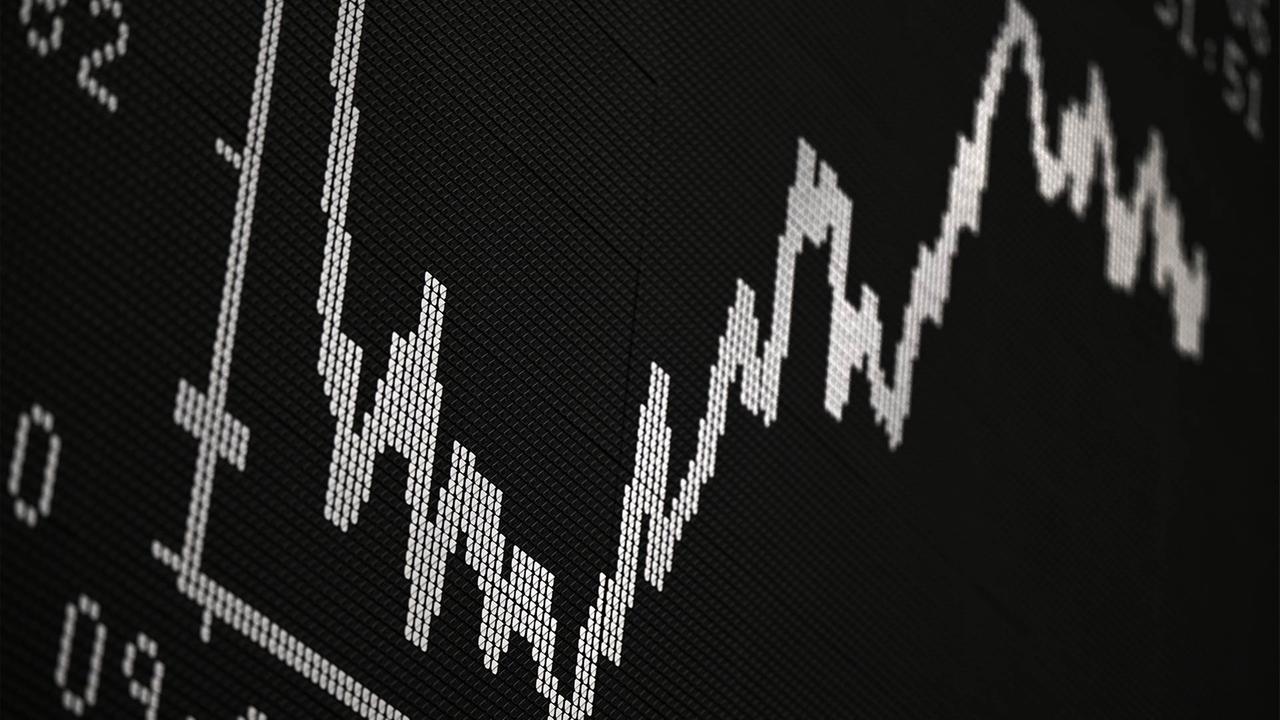analysis
While the German economy is sluggish and many experts are lowering their growth forecasts, the DAX is constantly reaching new heights. Has the stock market decoupled from the real economy?
For Federal Minister of Economics Robert Habeck, the economic situation in Germany is currently a “cause for concern”. Bureaucracy, a shortage of skilled workers, expensive energy, weak demand, high interest rates or strikes: the list of problems is long. Experts therefore expect a further decline in gross domestic product (GDP) in the first quarter, which would mean a technical recession.
At the same time, the DAX, which includes the shares of the 40 largest companies on the stock exchange, continues to climb to new heights. After reaching a new record level in mid-February, it set new records again at the end of last week. Since the beginning of the year alone, the German leading index has climbed by almost four percent, and since the interim low at the end of October it has even risen by more than 18 percent. How does that fit together?
“Not a pure reflection of the German real economy”
“To say that if the German economy is in recession, the DAX must also be weak is too simplistic,” says Emanuel Mönch, professor of monetary policy and financial markets at the Frankfurt School of Finance & Management, in an interview with tagesschau.de. There are indeed close connections between the stock market and the economy. “But the DAX is not a pure reflection of the German real economy.”
This is demonstrated by the international orientation of large corporations in Germany. “For the large DAX companies, only a small part of the business takes place in Germany,” emphasizes Andreas Hackethal, professor of finance at the Goethe University in Frankfurt. “There are various growth impulses on the global markets that can influence prices here too.”
According to estimates, the share of revenue generated abroad in total revenue for DAX companies is almost 80 percent. This means their income is less dependent on demand in Germany. In addition, many corporations produce some of their goods abroad and take advantage of the lower labor and energy costs there. “The development in other economies is therefore largely responsible for the DAX performance,” explains Mönch.
Positive news in the USA is also having an impact here
According to Mönch, the fact that the major indices often move in the same direction is also due to so-called rebalancing. “Institutional investors want to represent a weighted average of different markets and diversify their portfolios,” said the expert. So if stocks in a region rise, they gain weight, meaning more purchases have to be made elsewhere.
In addition, according to Mönch, positive news spills over to other markets and causes their prices to rise. An example: the renewed euphoria surrounding artificial intelligence (AI) in the USA. After the chip company Nvidia reported quarterly sales above expectations for the sixth time in a row last week, it wasn't just the US stock markets that reached new highs. The DAX and Asian indices also rose.
“Investors are slowly realizing that AI could have greater economic importance than expected,” says Mönch. Expert Hackethal, who conducts research at the Leibniz Institute for Financial Market Research SAFE, also observes this. “Technological leaps in the areas of AI and robotics can dramatically reduce costs for companies in all industries because productivity increases,” said the economist tagesschau.de. This creates optimism among market participants.
Hope that interest rates will fall inspires
Another reason for the rally is a recognizable pattern in the empirical data, says Mönch. “It is a typical phenomenon that stock markets rise sharply at the beginning of a recession.” This is not a new situation. Ultimately, investors are already anticipating the end of the economic downturn – especially in view of the declining inflation and the associated monetary policy.
“Interest rates are extremely important for stock returns because they represent the risk-free alternative,” explains the finance professor. If they fall, it will be good news for shareholders because they will become more attractive compared to interest-heavy financial products. “In a recession, this is usually the case because the central banks want to stabilize the economy.”
Hackethal also points to the expectations of investors. “The future will be traded on the stock market. And investors are currently looking at the companies and saying that things are looking less bad than they were a few weeks ago,” said the economist. The impression has become stronger that inflation is under control and interest rates will soon fall.
Uncertainties are decreasing
In fact, most market participants expect the central banks to lower their key interest rates again in the coming months. However, exactly when the interest rate turnaround will come remains uncertain. In the Eurozone, the first interest rate cut is expected in June. In the USA, too, according to the CME Group's Fed Watch Tool, a slight majority of market participants currently assume that the US Federal Reserve will take the first step downwards in June.
“With lower interest rates, companies’ future profits are worth more today and investments are cheaper,” says expert Hackethal. The better profit prospects, cheaper loans and higher demand have set the course for growth and innovation – from which the powerful large corporations in particular benefit.
In addition, the uncertainty has now decreased. The effects of the Ukraine war and other geopolitical tensions have now been priced in. “The fear among managers in large corporations of spill-over risks has decreased. They can plan more solidly,” says Hackethal.
Claudia Wehrle, ARD financial editorial team, tagesschau, February 26, 2024 12:28 p.m




